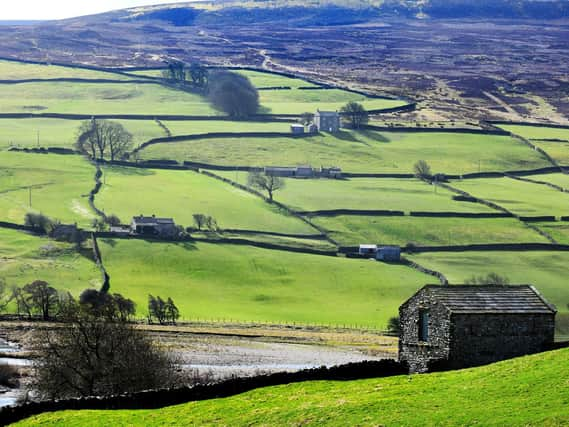Yorkshire Dales housing crisis being heightened by Brexit and growing demand for countryside living


The long-running issue of a dearth in homes for local communities has been accentuated by a dramatic rise in the cost of raw materials partly driven by the UK’s exit from the European Union and the impact on supply chains.
The desire for countryside living which has emerged during the Covid-19 pandemic, with house-hunters looking to rural locations as home-working is now becoming the norm, has also led to a growing demand for housing in the Dales.
Advertisement
Hide AdAdvertisement
Hide AdThe Yorkshire Dales National Park Authority this week announced its latest bid to tackle the affordable housing crisis, with a public consultation on the contentious issues of barn conversions as well as providing enough housing for local communities.
The authority’s head of sustainable development, Peter Stockton, said: “There have been long-running issues with affordable housing not just in the Dales, but in National Parks across the country.
“However, we have seen recent issues emerge with the cost of raw materials and also the changes in more and more people wanting to relocate to the country.
“This is heightening a problem that has persisted for years in the Dales.
Advertisement
Hide AdAdvertisement
Hide Ad“However, the National Park authority is working towards a long-term strategy to address the issue of affordable housing, which is among the most pressing needs in the Dales.”
The cost of building materials has been rising steadily for the past year, with demand for house-building also driven by the Government’s policies including the Help to Buy scheme and the stamp duty holiday.
Statistics published by the Department for Business, Energy and Industrial Strategy showed that timber prices were 10.2 per cent higher in May this year than in the same month 12 months earlier.
There are 12,688 dwellings across the 841 square miles of the National Park, and latest figures have estimated that its population was 23,488 in 2017.
Advertisement
Hide AdAdvertisement
Hide AdBut demand for second homes and holiday lets in the Dales has seen property prices soar. A total of 21 per cent of all properties are not permanently occupied, compared with a national average of just four per cent.
A revised target was set in June of 50 new homes being completed each year, with two-fifths classed as affordable housing. Last year, 105 homes were granted permission, but only 15 were actually built.
The high demand for homes in the National Park has seen property prices outstrip incomes. Average house prices are £268,750, compared to £155,000 in Yorkshire and the Humber and £235,000 in England.
But average annual wages in Craven, for instance, are just £23,353, according to the National Housing Association.
Advertisement
Hide AdAdvertisement
Hide AdThe consultation launched by the Yorkshire Dales National Park Authority involves plans to incorporate local occupancy restrictions, which can be placed on new dwellings to prevent them becoming second homes.
The policy could be introduced into an over-arching planning blueprint, called the Local Plan, that will shape development in the Dales between 2023 and 2040.
The consultation, which runs until September 20, is also seeking views on policies which guide the conversion of stone barns, known as lathes or cow houses, into new permanent housing or second homes.